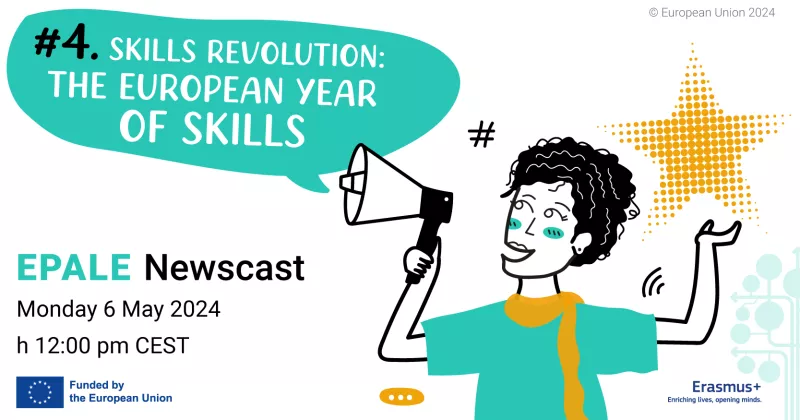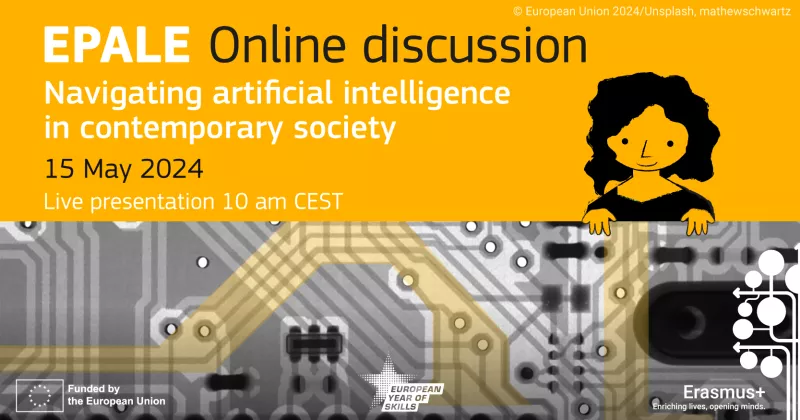Realisation of the programme's goals – Improving the competence of adults in Finland
No quantitative goals were set for ENO in the planning stage. The programme was primarily launched by the educational institutes that had 1.5 years of experience with the NAO programme, existing potential students who were too old for the NAO programme, and the opportunity to use the local network created around the application and support operations of the NAO programme. The results from the first operational year are excellent; with less than one fifth of the annual budget for the Young Adults' Skills Programme (EUR 10 M vs. EUR 52 M in 2015), as many as 1,518 new students were received in educational institutes and an astounding 904 new students (the goal was 1,000) were received in apprenticeships (situation 13 October 2015).
Similarly to the NAO programme, analyses were made on the new ENO students on statistic collection dates (20 September 2015 and 20 January 2016) by requesting information from the institutes implementing the programme on the students' sex, first language, age, and labour market position at the beginning of the studies. Regarding the labour market status, the ENO students essentially did not differ from the NAO students on the first day of statistics, but by January 2016, the employed students had clearly discovered the ENO programme. According to Statistics Finland, at the end of 2013, the share of employed people in the target group was 59 % among the NAO students and 67 % among the ENO students.
There are some key differences regarding the aptness of the NAO and ENO programmes. In the NAO programme target group, the share of men is 58 %, whereas 67 % of the ENO programme's target group are men (Statistics Finland 2013). The share of men among new students has risen in ENO after the beginning and now is closer to their share in the target group. Among new non-Finnish-speaking NAO students, their share rose in January 2016 and matched their share in the target group (25 %), but the share of new non-Finnish-speaking ENO students (as much as 54 % in January 2016) clearly exceeds their share in the target group (29 %). Based on the age structure, the distribution of new NAO students corresponds to the distribution of the target group (the majority of those without qualifications are under the age of 25) but the situation in ENO is reversed: in the target group, the majority is over the age of 40.
Similarly to the Young Adults' Skills Programme, educational institutes receive a great number of new students for “only" basic vocational education (table 4). On the other hand, apprenticeships have three times as many new students as the Young Adults' Skills Programme. In addition, the ENO programme allowed apprenticeships only during 2015; nevertheless, 20 % of the new students completed their degrees. It appears that apprenticeship-type training in the ENO target group could have further demand in the future.
ENO: Educational institute-type education | vocational upper secondary education | preparatory training for a vocational qualification | preparatory training for a specialist vocational qualification | total |
new students | 1,047 | 450 | 21 | 1,518 |
degrees | 15 | 34 | 4 | 53 |
parts of degrees | 253 | 117 | 2 | 372 |
Table 4: New ENO students, completed degrees, and parts of degrees by 20 September 2015 in educational institutes (situation 13 October 2015)
Read next Cooperation networks and cases of application operations.
About the writer
Erno Hyvönen is a project planner of the Young adults’ skills and Improving the competence of adults programmes at the Ministry for Education and Culture. His duties include monitoring the results of programmes, supporting the institutions carrying out the programmes as well as sharing the programme results.
Links to the other blogs about the Young Adults' Skills Programme in Finland:
- Good practices of the Young Adults' Skills Programme in Finland (main page)
- Background and administration of the Young Adults' Skills Programme
- Realisation of the programme's goals – NAO
- Cooperation networks and cases of application operations
- Internal policy reforms and cases of institutes
- Methods and cases for building the early stages of studies
- Methods and cases for support during studies
- Key findings and further development of skills programmes





